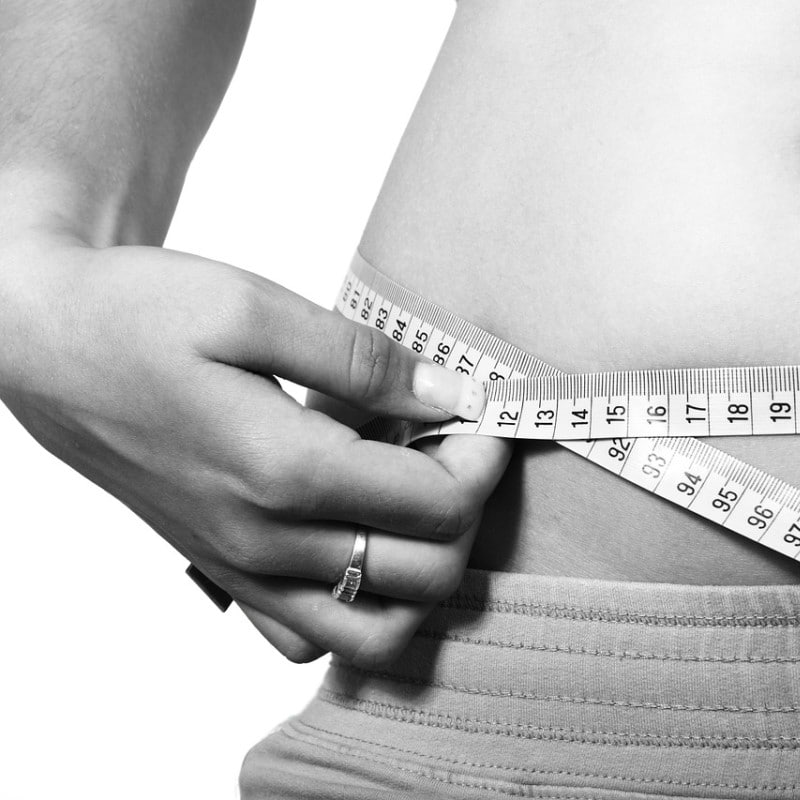
Have you been struggling with losing weight— particularly in certain parts of the body like your:
- Hips
- Buttocks
- Thighs
- Love handles
- Saddlebags
If you’ve been following a good diet, regularly exercising, and keeping it up every day but aren’t getting the results you want, then you are probably frustrated, angry. And even maybe even ready to throw in the towel.
But before you do— take a few minutes to read this article. There’s a reason that fat isn’t going away with just diet and exercise. It won’t go away because it is stubborn. You’re fighting against stubborn fat!
Yes, There Is Actually Something Called Stubborn Fat!
The name itself may give you some relief– it’s not your efforts that aren’t getting results. It’s the fat your fighting.
Stubborn fat is commonly made up of subcutaneous fat (the fat under the skin). It hangs out in the saddlebags, inner thighs, lower belly, and buttocks of women and saddlebags, inner thighs, and buttocks of men.
Stubborn fat is physiologically different than other fat. The differences, combined with the biochemistry behind how fats are released and burned off, cause the stubborn fat to burn off more slowly than the other fats. We won’t get into the details here. Instead, we’ll focus on the solutions.
Let’s Talk Hormones
Hormones affect all systems of the body. When one hormone gets out of balance, it can cause a cascading effect that will show up in various symptoms and problems.
Hormones have a special relationship with fat, and it turns out that hormones affect stubborn fat more than any other type of fat.
That may be why you have trouble getting rid of that last little bit of weight, and you have a hormone imbalance.
Insulin
Insulin is a fat-storing hormone. If a fat cell is insulin sensitive, it will release less fat and store more. Stubborn fat tends to be more insulin sensitive than other fat, so it is more likely to hold onto fat than let it go.
Catecholamines
Catecholamines (adrenaline & noradrenaline/epinephrine & norepinephrine) usually speed up fat release, but sometimes, when they are not doing their job properly, they can slow fat release.
Thyroid
When working correctly, the thyroid hormone works in opposition to estrogen, making stubborn fat less stubborn. But if the thyroid malfunctions and there isn’t enough thyroid hormone to do its job, then stubborn fat comes back, and overall weight gain can occur.
Supporting Your Thyroid
Consider what you eat. Skip soybeans, raw kale, and other raw cruciferous veggies. Eat foods that are high in iodine like wild-caught salmon, low-mercury fish, and seaweed.
Take supplements that support thyroid function. The right multivitamin, fish oil, and vitamin D will do the trick. You can try iodine supplements, but you can overdose on iodine, so get your iodine levels tested regularly.
Get on a thyroid hormone replacement therapy regimen. If you are suffering from hypothyroidism, thyroid replacement therapy can do wonders in replacing the thyroid hormones that you need.
Sex Hormones
Imbalances of estrogen, progesterone, and testosterone can cause weight problems, whether or not you are a man or a woman.
There are several ways that you can get hormones back into balance:
- A diet that is low in sugar, high in healthful fats, and high in fiber can balance hormones.
- Make sure to include plenty of fiber in your daily diet.
- Make sure that you have daily bowel movements.
- Cut down on or quit alcohol altogether.
- Include plenty of exercise in your daily routine.
- Visit a doctor who specializes in hormone replacement therapy.
Cortisol
Stress is also a cause of stubborn fat. Your thoughts can create hormonal responses that cause weight gain and insulin resistance. The hormone cortisol is released when we are in danger.
It preps the body to flee or fight, but in doing so, it has to slow down other things like your digestion and metabolism. High levels of cortisol over the long term can cause a thicker belly, high blood sugar, high blood pressure, high cholesterol levels, and muscle loss.
What Can You Do to Decrease Stress?
Work with us! We can help you identify your main stressors and will support you in addressing them. They can also help identify any trauma from your past that is still hanging around and causing an unwarranted stress response.
Change your thinking. Patterns of negative thinking, fear-based thinking, or worrying will keep you stressed out, and you don’t even have to have any new stresses come up if you are worrying over the old stuff. Replace these thoughts with something positive to keep your stress levels lower.
Take on an active relaxation practice like yoga, tai chi, or meditation. Breathing exercises can be effective in lowering cortisol levels.
For many people, this may be the hardest to master: be a human being, not a human doing. Staying present and connecting with friends and family can go a long way in providing feelings of safety that will minimize the stress response.
Kicking Out the Stubborn Fat
If you’ve been working on your own to get rid of the weight, but it won’t budge, then it’s time to enlist professional help.
We specialize in helping people lose weight. Our team will work with you to identify the underlying cause of your weight-loss problem and work with you to create a plan of attack that will finally eradicate that stubborn fat once and for all.